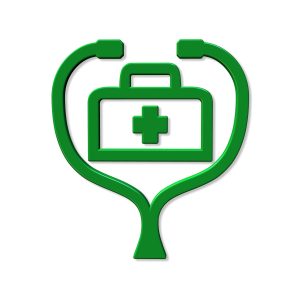PSR in Mental Health is a critical aspect of overall well-being, and understanding the different treatments and approaches to improving mental health is essential. One such approach is PSR, or Psychosocial Rehabilitation, a therapeutic method aimed at improving the quality of life and functioning for individuals with mental health disorders. If you’re looking to understand what PSR is, how it works, and how it can help individuals, this article will break it down for you.
As a health professional, I often find that there’s some confusion surrounding what PSR is and how it fits into the broader landscape of mental health treatment. In this guide, I’ll explain what PSR is, how it works, and its benefits in a way that will help you grasp its significance in the realm of mental health.
What is PSR in Mental Health?
Psychosocial Rehabilitation (PSR) is a form of mental health treatment designed to help individuals with mental illness lead fulfilling lives by improving their social skills, emotional regulation, daily functioning, and independence. Unlike traditional medical treatments that focus mainly on symptoms, PSR addresses the social and environmental aspects of mental health recovery, aiming to help individuals cope with challenges in their daily lives.
PSR is often used for individuals with severe mental health conditions such as schizophrenia, bipolar disorder, and major depression, though it can be beneficial for anyone struggling with mental health challenges. The ultimate goal of PSR is to help individuals reintegrate into society, maintain meaningful relationships, and perform daily tasks as independently as possible.
You also may like to read this: What is CYD in Health Insurance?
Key Components of PSR
- Assessment and Diagnosis: PSR begins with a thorough evaluation of the individual’s mental health status, including a detailed assessment of their social environment, personal challenges, and goals.
- Goal Setting: Setting specific, measurable, and achievable goals is vital in PSR. These goals are focused on improving daily living skills, social interactions, and emotional regulation.
- Skills Training: PSR involves training in key skills such as managing finances, finding and maintaining employment, handling social interactions, and building emotional resilience.
- Community Reintegration: A significant part of PSR is ensuring that individuals are supported as they re-enter the community, whether that means returning to work, school, or forming new social connections.
How PSR Works in Mental Health Care
Psychosocial Rehabilitation involves a multidisciplinary approach where healthcare providers work with the individual and their family to ensure that the goals are being met. Therapists, social workers, nurses, and other professionals may collaborate to provide a holistic, well-rounded treatment plan. The specific treatments and techniques vary based on the person’s needs, but typically, PSR programs include:
- Cognitive Behavioral Therapy (CBT): A therapeutic technique used to help individuals understand and change patterns of thinking that affect behavior and emotions.
- Social Skills Training: Focuses on improving an individual’s ability to engage with others and build lasting social relationships.
- Vocational Rehabilitation: This aspect focuses on helping individuals find, secure, and maintain employment.
- Family Therapy: Since family dynamics often play a significant role in mental health, involving family members in therapy can be crucial to the person’s recovery.
- Peer Support Groups: Groups where individuals with similar mental health challenges come together to share experiences and support each other.
Why is PSR Important?
Mental health treatment has evolved significantly over the years, and Psychosocial Rehabilitation is crucial because it addresses the full spectrum of needs faced by those with mental health disorders. Traditional medical treatments might focus on symptom management, but PSR aims to improve functioning and help individuals live independently.
One of the primary reasons PSR is vital in the mental health field is that it promotes self-sufficiency and empowerment. It helps individuals understand their illness, recognize their strengths, and make tangible progress toward their personal goals.
Pros and Cons of PSR in Mental Health Treatment
As with any treatment approach, there are pros and cons to PSR. Let’s explore them:
Pros of PSR
- Holistic Approach: PSR addresses mental health from all angles—emotional, social, and practical—leading to a more well-rounded recovery process.
- Improves Daily Living Skills: It equips individuals with the tools needed to succeed in daily life, whether that involves managing a budget, handling social situations, or maintaining a job.
- Promotes Independence: One of the biggest benefits of PSR is that it allows individuals to regain independence and autonomy over their lives.
- Social Integration: PSR encourages building relationships and becoming more involved in community life, which is essential for social integration.
Cons of PSR
- Requires Long-Term Commitment: The process of rehabilitation is often long-term, requiring continuous effort, which might be a challenge for some.
- Not Always Covered by Insurance: In some cases, PSR programs are not fully covered by health insurance, which can limit access for some individuals.
- Can Be Time-Consuming: Participation in PSR programs often requires significant time and effort from both the individual and their support network.
Comparison Table: PSR vs. Traditional Therapy
| Feature | PSR | Traditional Therapy |
| Focus | Holistic, addressing all aspects of daily life | Primarily symptom management |
| Duration | Long-term, ongoing support | Short-term, focused on specific issues |
| Approach | Collaborative, community-focused | Individual-focused, often one-on-one |
| Goals | Independent living, social integration | Symptom relief and emotional support |
| Methods | Skills training, social integration, family therapy | Talk therapy, CBT, medication management |
Common Techniques Used in PSR Programs
- Cognitive Behavioral Therapy (CBT): This is an effective method used within PSR to address distorted thinking patterns and encourage healthier coping strategies.
- Skills Development Workshops: These workshops focus on areas like time management, communication, and problem-solving.
- Peer Counseling: Peer counselors, who have lived through similar challenges, provide support and guidance to others, offering a sense of solidarity.
- Behavioral Activation: Encouraging individuals to engage in meaningful activities that enhance their quality of life and promote a sense of achievement.















